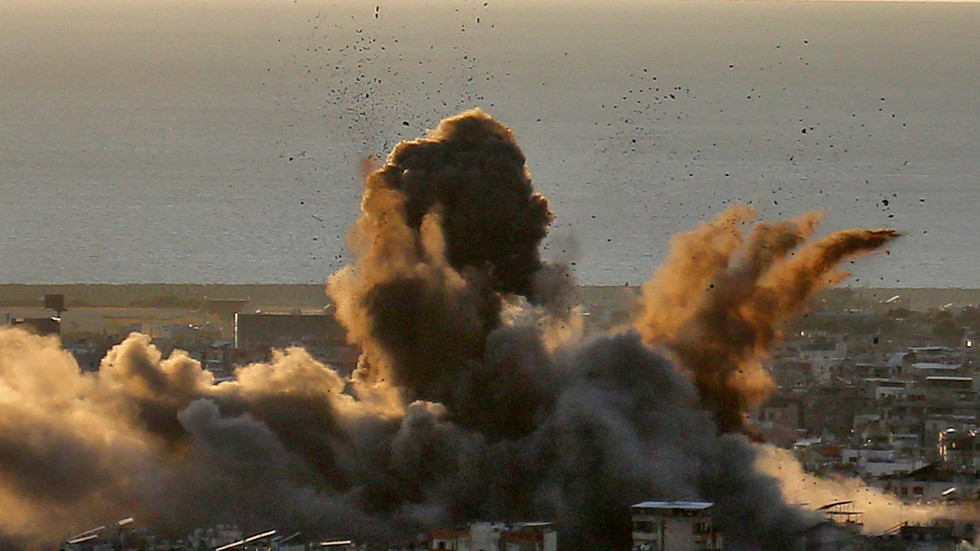In recent developments regarding the ongoing conflict in Lebanon, Israel has presented the United States with a list of conditions aimed at facilitating a diplomatic resolution. According to Axios, the Israeli Prime Minister’s Office submitted these demands to the White House ahead of a visit by U.S. President Joe Biden’s envoy, Amos Hochstein, to Beirut. The conditions reportedly focus on granting the Israel Defense Force (IDF) greater operational freedom in southern Lebanon, enabling them to combat the activities of Hezbollah—a militant group that Israel perceives as a significant threat to its national security. The pressing nature of these conditions reflects Israel’s determination to address what it views as an urgent need to curb Hezbollah’s military capabilities.
The Israeli request includes two primary conditions: first, the allowance for the IDF to engage in “active enforcement” against Hezbollah’s rearmament efforts in southern Lebanon. This implies that Israel would seek to preclude Hezbollah from restoring its military infrastructure near the Israeli border. The second condition concerns the IDF’s need for unrestricted access to Lebanese airspace, granting them freedom to conduct aerial operations aimed at suppressing Hezbollah’s military actions. These demands highlight the seriousness with which Israel views the threat posed by Hezbollah and underscore its commitment to ensuring its own security through proactive engagement.
However, the feasibility of these Israeli demands remains highly questionable, as indicated by reactions from U.S. officials and international observers. It is unlikely that Lebanon or the broader international community would endorse Israel’s requests because they appear to contravene the principles outlined in UN Security Council Resolution 1701. This resolution calls for a ceasefire between Israel and Lebanon, which is to be upheld by the Lebanese Armed Forces in collaboration with the UN Interim Force in Lebanon (UNIFIL). This points to a complex and potentially contentious diplomatic landscape, as adherence to international law and respect for Lebanon’s sovereignty become crucial factors in any resolution.
In response to concerns regarding these demands, an Israeli official articulated that the proposals are aimed at enhancing the enforcement capabilities provided by the UN resolution rather than undermining it. The assertion is that if the Lebanese army and UNIFIL can bolster their efforts, then the IDF would be inclined to limit its own military actions. This perspective seeks to frame Israel’s operational strategy as a cooperative approach while simultaneously reinforcing its security concerns. Nevertheless, the dynamic is complicated by the historical tensions between Israel, Hezbollah, and Lebanon, and any potential adjustment in military engagement would have to navigate these sensitive relations.
On the operational front, the situation remains tense, illustrated by the IDF’s recent series of airstrikes across Lebanon. These targeted operations were aimed at the Al Qard Al-Hassan Association, which Israeli intelligence claims is intertwined with Hezbollah’s financial management. The airstrikes were reported in various locations, including Beirut and southern Lebanon, signaling Israel’s ongoing commitment to counteracting perceived threats. Such military actions not only showcase Israel’s proactive stance but also underline the fragile nature of the ceasefire that has been in place, demonstrating the potential for escalation if diplomatic avenues do not yield fruitful results.
The overall situation reflects a challenging intersection of military strategy, international law, and diplomatic negotiations. As Israel pushes for operational leeway in its struggle against Hezbollah, the implications on regional stability are profound. The U.S. positions itself amid these conflicting demands, tasked with fostering a dialogue that addresses Israeli security concerns while also respecting Lebanon’s sovereignty and abiding by international resolutions. The unfolding dynamics highlight the ongoing complexities of the Lebanese conflict and the broader geopolitical challenges that stem from the decades-long tensions in the region, necessitating careful diplomatic navigation.

